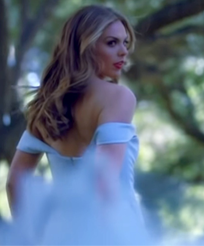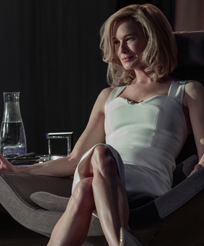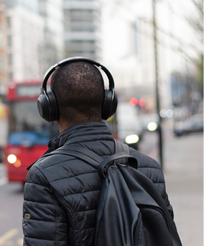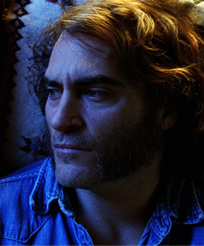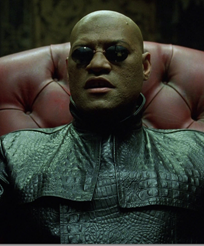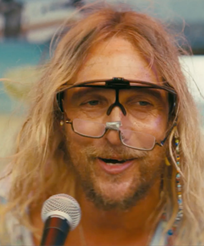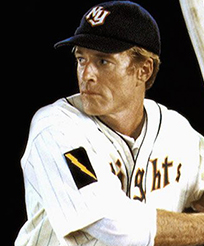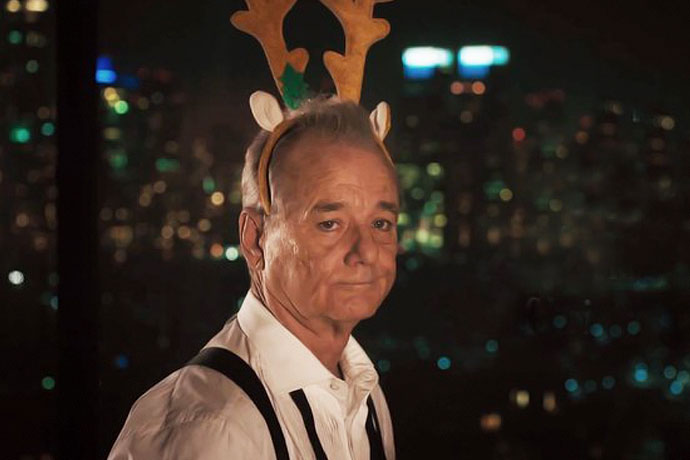
Sofia Coppola’s Netflix special A Very Murray Christmas stars Bill Murray as a rueful,
tad-curmudgeonly version of himself, in fits over the “sad excuse for a Christmas special” he’s slated
to host at New York’s Carlyle Hotel. There’s a blizzard a’ raging outside, preventing the other stars
from showing up. His handlers, and Murray, grow increasingly weary. Less than a few minutes in, however, the
power goes out all over the East Coast. The show must no longer go on.
What happens over the course of the next 40 minutes is its own sort of Christmas special. Murray sings through the holiday songbook with the various guests and employees also stranded at the hotel. Eventually, he falls over, hits his head and dreams of the special that should’ve been—complete with scantily clad dancers, Miley Cyrus and George Clooney—before waking up in his hotel room on Christmas Day, alone but for a trusty Paul Shaffer on piano.
There are some high points—like a performance by the band Phoenix, and a brief appearance from Michael Cera—but most of the movie is a slog. It’s slow, and never particularly funny or clever. Yet it manages to serve both as an elegy for the Christmas specials of old, when families would gather around the warm glow of the television to watch, and a harbinger for Christmas specials in the age of Netflix, where we’re more likely to watch alone, in bed or at work, on our laptops and iPhones and tablets. In Coppola’s universe, those old-timey specials are relegated to dreams. The reality she presents instead is lonelier and, to judge from the amateurish singing, far from perfect, albeit accented with sincere moments of happiness.
Who better to usher us through this transition than Bill Murray? His persistent melancholia burns through the veneer of Christmas joy to reveal what lies beneath. Who could be a more ideal stand-in for the Netflix viewer, watching a Christmas special all by himself (as I did, less than a year ago)?
Unfortunately, A Very Murray Christmas has a way outside chance (100/1) of upsetting HBO’s adaptation of All the Way (10/1) to win the exalted—ha—Outstanding Television Movie category.
I have no reason to believe the latter is anything less than superb, or that the Emmys won’t wet their collective pants at the chance to adorn Bryan Cranston (who exec produced) with yet another award. I, however, believe that Coppola’s film is more important. It’s the movie that will move the idea of the Christmas special forward in the years to come.
Not to mention, the notion that traditional TV is a dying medium and shared cultural experiences are essentially kaput.
But who cares about that stuff.
What happens over the course of the next 40 minutes is its own sort of Christmas special. Murray sings through the holiday songbook with the various guests and employees also stranded at the hotel. Eventually, he falls over, hits his head and dreams of the special that should’ve been—complete with scantily clad dancers, Miley Cyrus and George Clooney—before waking up in his hotel room on Christmas Day, alone but for a trusty Paul Shaffer on piano.
There are some high points—like a performance by the band Phoenix, and a brief appearance from Michael Cera—but most of the movie is a slog. It’s slow, and never particularly funny or clever. Yet it manages to serve both as an elegy for the Christmas specials of old, when families would gather around the warm glow of the television to watch, and a harbinger for Christmas specials in the age of Netflix, where we’re more likely to watch alone, in bed or at work, on our laptops and iPhones and tablets. In Coppola’s universe, those old-timey specials are relegated to dreams. The reality she presents instead is lonelier and, to judge from the amateurish singing, far from perfect, albeit accented with sincere moments of happiness.
Who better to usher us through this transition than Bill Murray? His persistent melancholia burns through the veneer of Christmas joy to reveal what lies beneath. Who could be a more ideal stand-in for the Netflix viewer, watching a Christmas special all by himself (as I did, less than a year ago)?
Unfortunately, A Very Murray Christmas has a way outside chance (100/1) of upsetting HBO’s adaptation of All the Way (10/1) to win the exalted—ha—Outstanding Television Movie category.
I have no reason to believe the latter is anything less than superb, or that the Emmys won’t wet their collective pants at the chance to adorn Bryan Cranston (who exec produced) with yet another award. I, however, believe that Coppola’s film is more important. It’s the movie that will move the idea of the Christmas special forward in the years to come.
Not to mention, the notion that traditional TV is a dying medium and shared cultural experiences are essentially kaput.
But who cares about that stuff.







